
Producing over 40% of teachers in South Africa
According to a 2016 report, South Africa was last out of 50 countries in the Progress in International Reading Literacy Study (PIRLS 2016). Just about four out of five Grade 4 pupils were situated lower than the bottommost internationally recognised level of reading literacy. “The Classroom Interaction Pedagogy (CIP) project is an attempt to address this situation,” says Dr Malewaneng Margaret Maja, a lecturer with the Department of Instructional Studies (DCIS) in Unisa’s College of Education (CEDU).
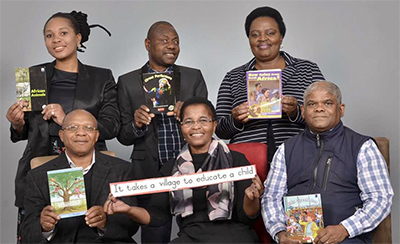
Classroom interaction pedagogy (CIP) project team: Back, Dineo Horner, Ezekiel Chauke, and Dr Khabonina Nkumane, and, front, Prof Masilonyana Motseke, Dr Margaret Maja, and Prof Micheal van Wyk
The project involves Intermediate Phase (grades 4-6) teachers and learners of 14 public primary schools located in the Mogodumo Circuit, in Lebowakgomo, Limpopo. This important project was initiated and has been working in this community since 28 November 2017. Maja, who is the project leader, and Professor Masilonyana Motseke, who is the project manager and associate professor with the CEDU Department of Adult Basic Education (ABET), laid the foundation for this project by visiting the Lebowakgomo District education offices to establish a rapport with the stakeholders.
Between 13 March and 24 April 2018, Maja and Motseke visited four primary schools to conduct observations of teaching and learning in grades 4-6 classrooms, interviews with teachers ,and focus group interviews with learners. The purpose was to identify the problems that teachers were experiencing in teaching English First Additional Language (EFAL).
On 24 May 2018, these findings were made available to the Mogodumo Circuit Manager, the principals, EFAL teachers and school governing bodies (SGBs). The findings led to the development and implementation of the Intermediate Phase EFAL teachers training programme, which took place from 17 to 19 July 2018. The training concentrated on the teaching of listening and speaking, reading and viewing, writing and presentation skills as well as language structure and conventions. Mr Kekana (MEC), Ms Malatji (District Manager), Ms Maboa (Circuit Manager), and Mr Mashala (SGB Manager) also attended the training. “A more intensive programme on writing and presenting (writing process) will be dealt with in the next workshop, in 2019,” Maja commented. She also confirmed that the scope of the project extends beyond the workshop. “After this 2018 workshop, we will keep on supporting teachers in their respective EFAL classrooms,” she concluded.
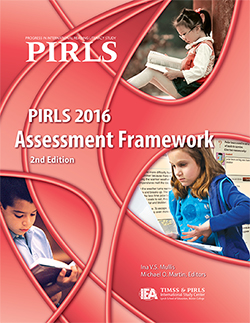 Background to CIP
Background to CIPDr Margaret Maja is a lecturer with the College of Education at Unisa, where academic key performance areas include academic citizenship and community engagement. Thus, when a study conducted by Murray, in 2016, yet again confirmed the findings of the PIRLS 2016 International Results in Reading, she felt compelled to research and develop strategies that would capacitate learners to learn and understand the target language. Because of that research experience, she was prompted to help teachers to find ways of teaching learners in the Intermediate Phase to communicate confidently in English, inside and outside the classroom.
Maja chose the Mogodumo Circuit, as this was where her teaching career started and where she gained experience in teaching the EFAL. The school was poorly resourced, as most rural schools in South Africa are. Moreover, recent studies show that the South African primary school learners performed the worst in the world in basic reading, with Grade 4 learners living in the rural and township areas having the lowest reading literacy scores (Daily Maverick 6 December 2017).
Thus, Dr Maja wanted to plough back into her community and share with the teachers her experiences and provide practical solutions. Since English is an additional language for most of South African learners, and the language predominantly used in international markets, the decision was taken to focus on classroom interaction pedagogy as a communication strategy to enhance learners' communicative competence.
The aim of the project is to create a nation that is proficient in listening, speaking and reading in English, by exposing learners to reading material and, subsequently, to convert these skills into writing.
The objectives of the project are to:
This can be achieved if learners are provided with ample opportunities to use English as their additional language and the language of learning across the curriculum. The Department of Basic Education (DBE 2011:9) also requires that teachers ensure that all learners have the opportunity to speak English.
The use of English, as a language of teaching and learning, is rapidly growing across the globe. South Africa is one of the countries that keeps up to date with the developments in technology and participates in the fast-paced international business markets. In order to match the competencies of other stakeholders in an increasingly competitive international environment, as well as to participate in this environment, proficiency in English, and a shift from the home language, is necessary.
Through community engagement and by providing support to teachers with the CIP project, Maja and Motseke endeavour to improve teaching in English First Additional Language and thereby assist in improving the English language proficiency of learners in the Intermediate Phase. The participation in and cooperation among the different stakeholders in this project reflect true convergence and collaboration.
*By Masilonyana Motseke
Publish date: 2018-10-10 00:00:00.0
 National leader in mathematics education aims to improve outcomes
National leader in mathematics education aims to improve outcomes
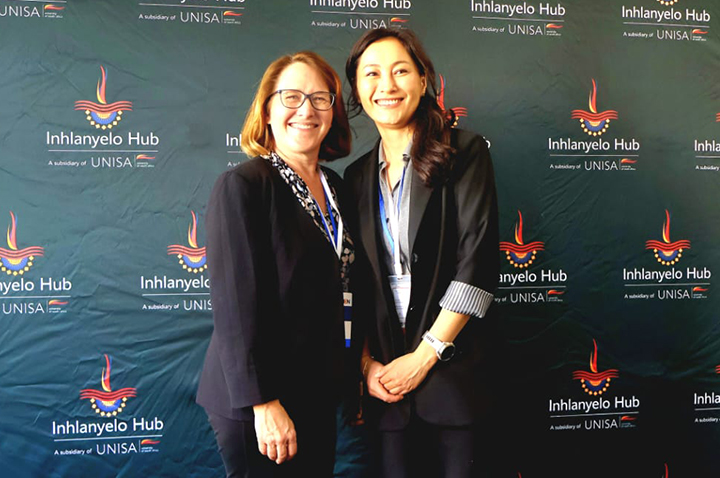 Unisa roundtable focuses on empowering SA women to lead in innovation
Unisa roundtable focuses on empowering SA women to lead in innovation
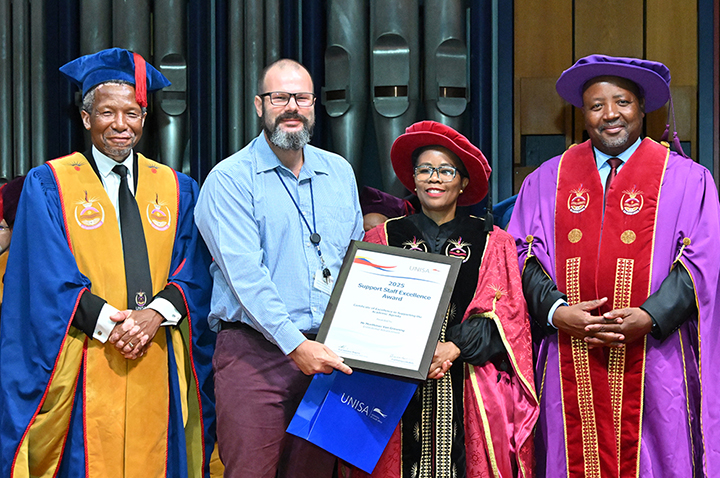 Unisan recognised for web excellence
Unisan recognised for web excellence
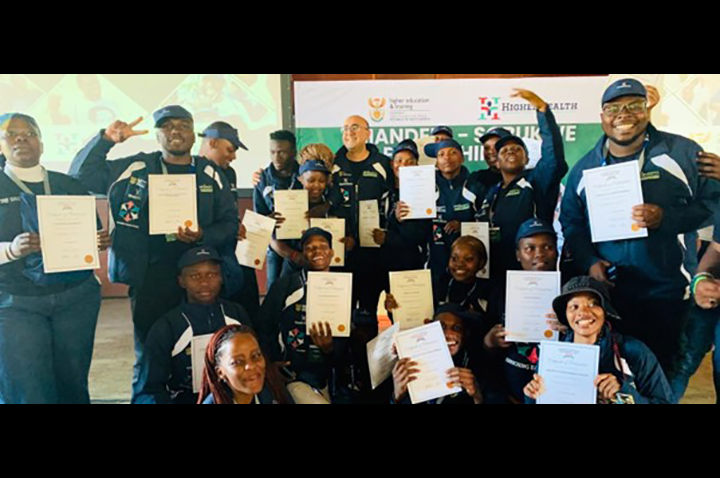 Office of the Dean of Students participates in leadership camp
Office of the Dean of Students participates in leadership camp
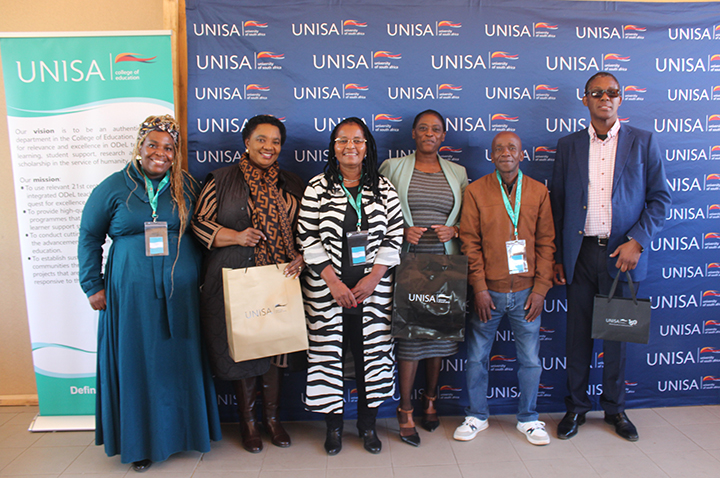 Unisa project fosters digital and pedagogical innovation in Limpopo schools
Unisa project fosters digital and pedagogical innovation in Limpopo schools